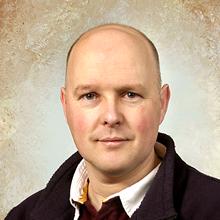Scientists develop new approach to support future climate projections
A team of international scientists including Eelco Rohling, Professor of Ocean and Climate Change at the University of Southampton, have developed a more consistent definition of climate sensitivity in prehistoric times.
The new approach developed for evaluating past climate sensitivity data has helped to improve the comparison with estimates of long-term climate projections developed by the Intergovernmental Panel on Climate Change (IPCC).
When the scientists evaluated previously published estimates for climate sensitivity from a variety of geological episodes over the past 65 million years, they found that the estimates varied over a very wide range of values, with some very high values among them (high values would imply a very strong temperature response to a change in radiative forcing, for example, due to CO2 increase).
The team discovered that this wide range was almost entirely due to the fact that different researchers used different definitions.
Professor Rohling, who is currently based at the National Oceanography Centre Southampton but will join the Australian National University next year, says: "Consistent intercomparison is a top priority, because it is central to using past climate sensitivity estimates in assessing the credibility of future climate projections."
The sensitivity of global temperature to changes in the Earth's radiation balance (climate sensitivity) is a key factor for understanding past natural climate changes as well as potential future climate change.
The research stems from a three-day Academy Colloquium attended by about 40 internationally renowned specialists in past and present climate studies, held at the Royal Netherlands Academy of Arts and Sciences in Amsterdam last year.
The findings are published in the latest edition of the journal Nature.
What's related
Related Staff Member
Links to external websites
- New Approach to Support Future Climate Projections
- Southampton Varsity scientists develop a new approach to support future climate projections
The University cannot accept responsibility for external websites.
